
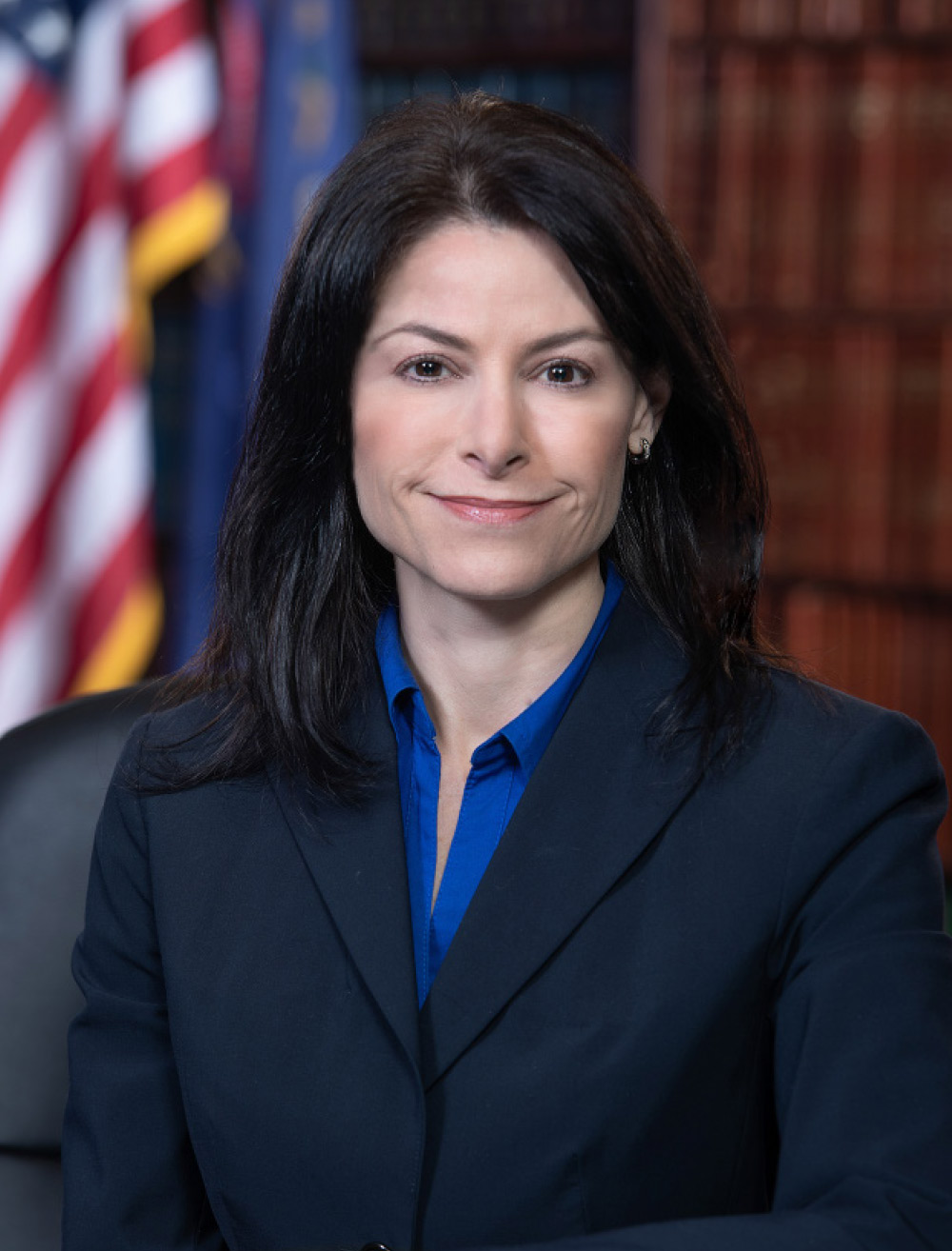
“Irrespective of your race, religion, national origin, ethnicity, sexual orientation, gender identity, income, geography, we are all deserving of the same rights and protections,” she continues. “It’s particularly important that the Michigan attorney general be an advocate for all people.”
“I hope that it was something that was inspiring to people who believed that they would never be considered equal in the eyes of their peers or by society as a whole,” she says of the election. “But more than anything, I think it shows that people care more about what your message is and what things you commit to doing in the office for which you’re running than the gender of the person you’re married to.”
Nessel is quick to point out that she is a member of more than one minority group as the first Jewish person to hold this office (“I never get that question,” she quips). But that’s beside the point.
“There were a lot of people after the election who said, ‘I just liked the fact that you were going to go after the chemical manufacturers to clean up our PFAS issue in this state,’ or ‘I like the fact that you wanted to hold some drug manufacturers accountable when it came to opioids,’” she says.
“We made some pretty novel claims — the first time those claims were made anywhere in the country,” says Nessel, who has named AmerisourceBergen, Cardinal Health, McKesson and Walgreens in the lawsuit.
Nessel says that she is active in settlement discussions with pharmaceutical manufacturers and distributors. Her goal is to use settlement funds for treatment and diversion programs, drug courts, emergency services, and medications that can properly combat this epidemic.
“I want to settle those cases in a way where I’m bringing as much money as possible back to the state of Michigan,” she says, “and I’d like to do that as soon as possible because there’s a real need for it.”
And with the 38,000 cases that her office is handling, Nessel is acutely aware that her work has a ripple effect across the state. That’s why she’s so passionate about speaking with residents and hosting town halls throughout Michigan.
“What I’ve found to be the case is that it doesn’t matter how good our work is or the services that we provide to our residents if our residents don’t know about it,” she says, “so a lot of times I’ll go places and be like, ‘Did you know that if you have a problem and you think a loved one is being neglected in a nursing home, you can call our office?’”
Nessel has held town halls on a range of issues such as elder abuse, criminal justice reform, the Freedom of Information Act and Open Meetings Act, consumer protection, and clean water.
And for Solicitor General Fadwa Hammoud ’10, clean water is paramount. She is leading the criminal case for the Flint water crisis — what she refers to as “one of the worst man-made environmental catastrophes in United States history.”
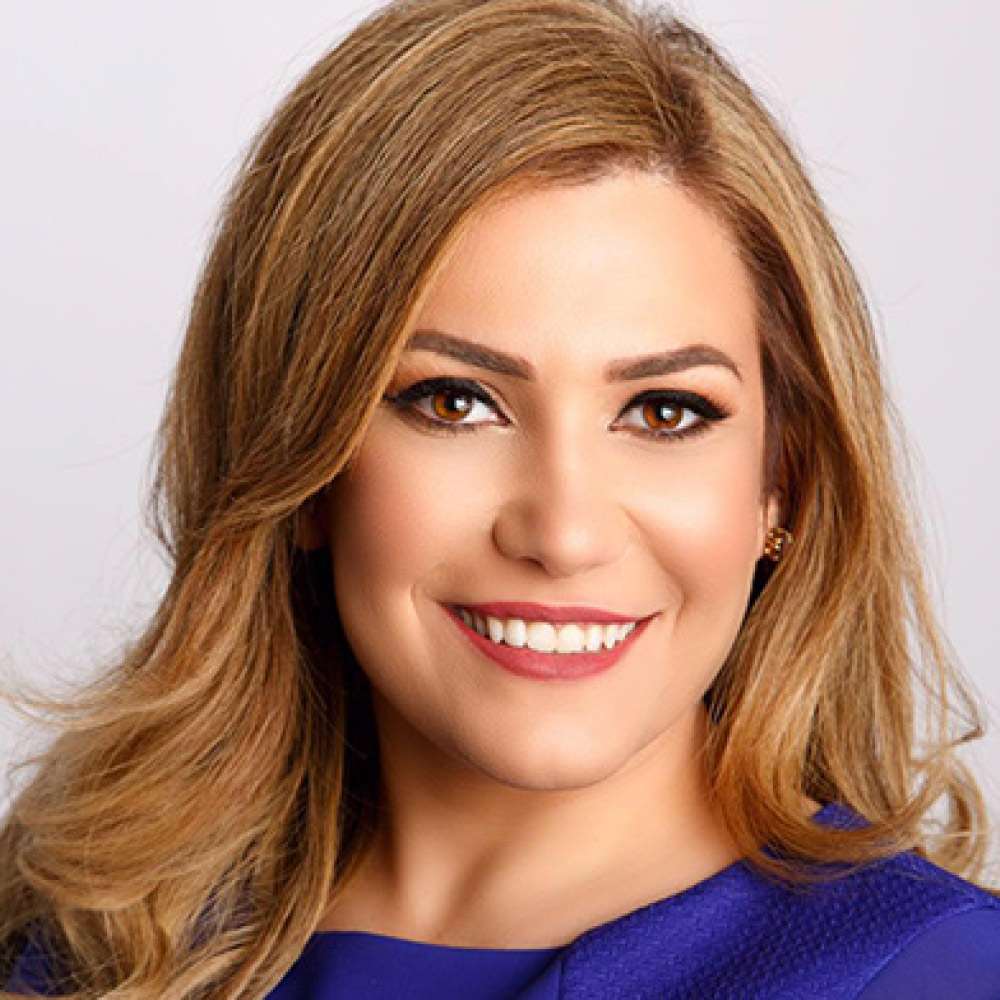
It’s a tall order. But for Hammoud, a career prosecutor who calls her work a “sacred responsibility,” she is more than ready.
“In Lebanon, where I was born and raised, I learned that my triumphs and struggles were never mine alone — that uplifting those around me was both morally righteous and practically necessary,” says Hammoud, who is the first Muslim Arab American solicitor general in the nation. “Being Muslim taught me that justice is not simply a desirable outcome, but a mode of thought that honors the inherent value of all people.”
She continues, “Holding the office of Michigan’s top appellate attorney means I have both the responsibility and the capacity to dig deeper into our collective challenges. Doing so as the first Muslim and Arab American hopefully means that the next crop of public servants will have one less barrier to break, and one more reason to serve.”
It was while Hammoud was working as a prosecutor in the Wayne County Circuit Court’s Frank Murphy Hall of Justice that she first met Nessel. “Dana had a reputation as the people’s attorney,” she says. “Every one of her appearances in the courtroom was a clinic on how to be a fearless advocate.”
— Fadwa Hammoud
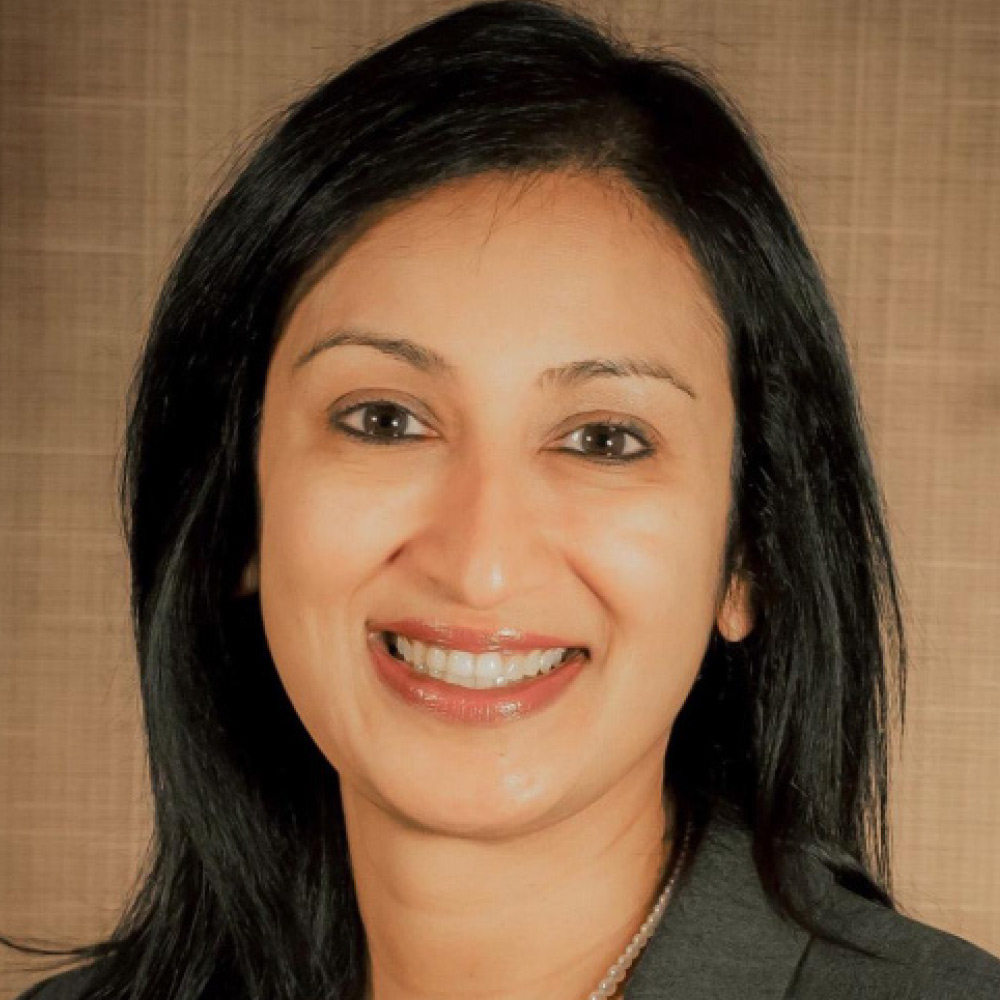
“In this kind of job, no one I interact with is happy to see me,” Doddamani says. “Either you’re a victim of a crime, or you’re being prosecuted for committing a crime.”
Overwhelmingly, hate crimes go underreported — and, as Doddamani points out, those that are reported are all too often misclassified as other crimes. That’s why she is so vigilant about educating others on what constitutes a hate crime.
“Identifying them at an early stage is important so they are handled properly,” says Doddamani, who has been reaching out to community leaders to raise awareness of the resources that her unit provides for potential investigations. “Michigan is consistently in the top states with the most hate crimes. I’m very proud to be part of this targeted effort to reverse that rise.”
This kind of transformative work is what inspired Doddamani to pursue a career as a public servant.
“I wanted to be part of the effort to make my city safer,” she says. “I wanted to do work that would affect the crime in my own backyard.”
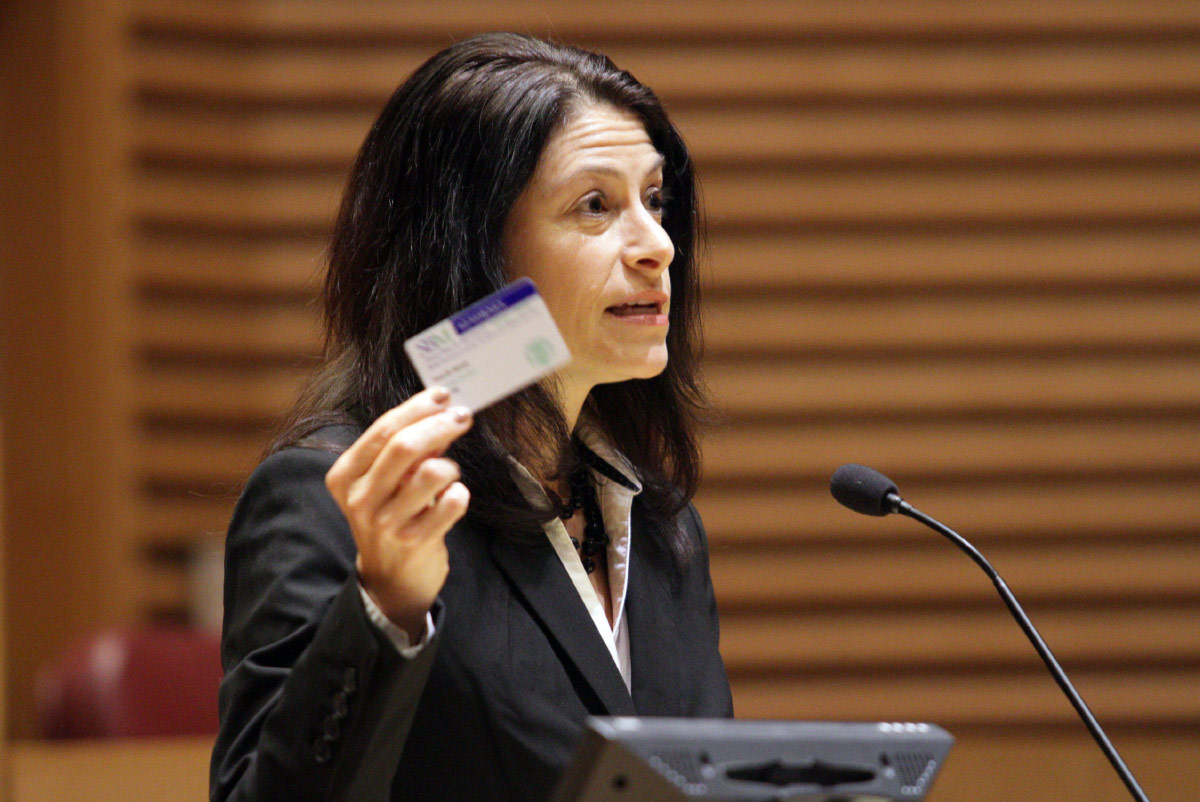
“It started off as an adoption case,” Nessel says of the 2012 case, which was filed by Hazel Park couple April DeBoer and Jayne Rowse in the U.S. District Court for the Eastern District of Michigan. “When we filed it, I didn’t think that it would be precedent setting in terms of marriage equality.”
Instead, Nessel believed she would help move the needle regarding adoption rights for same-sex couples.
“It became clear that Judge [Bernard] Friedman wanted us to amend our pleadings and involve a challenge to the Michigan Marriage Amendment,” Nessel says, referring to the 2004 amendment to the state constitution that banned same-sex marriage. “And I did think it would be precedent setting, and I conveyed that to as many people as possible.
DeBoer v. Snyder went on to be consolidated with affiliated 6th U.S. Circuit Court of Appeals cases into Obergefell v. Hodges in the U.S. Supreme Court — the landmark case that legalized same-sex marriage across the country in 2015.
— Dana Nessel
As Nessel recalls, “People just thought I was crazy. But I knew that the facts of our case were so compelling that it was really the best possible vehicle to go to the Supreme Court.”
Nessel, as Hammoud puts it, “inspired a generation of civil rights advocates to take the fight all the way on behalf of the people.” Obergefell v. Hodges marked the third time in American history that marriage equality was put to trial — an achievement in which the attorney general takes a lot of pride. But for Nessel, that experience was all the more rich thanks to a key member of her team: Distinguished Professor of Law Robert A. Sedler.
“I couldn’t have possibly handled a case of that magnitude without his level of expertise,” Nessel says. “It was a really proud moment for me, all those years after having been Bob’s student, to walk arm-in-arm with him into the United States Supreme Court as our case was being argued. It was a combination of being able to use my magnificent education I got at Wayne Law, combined with my magnificent professor who taught me.”
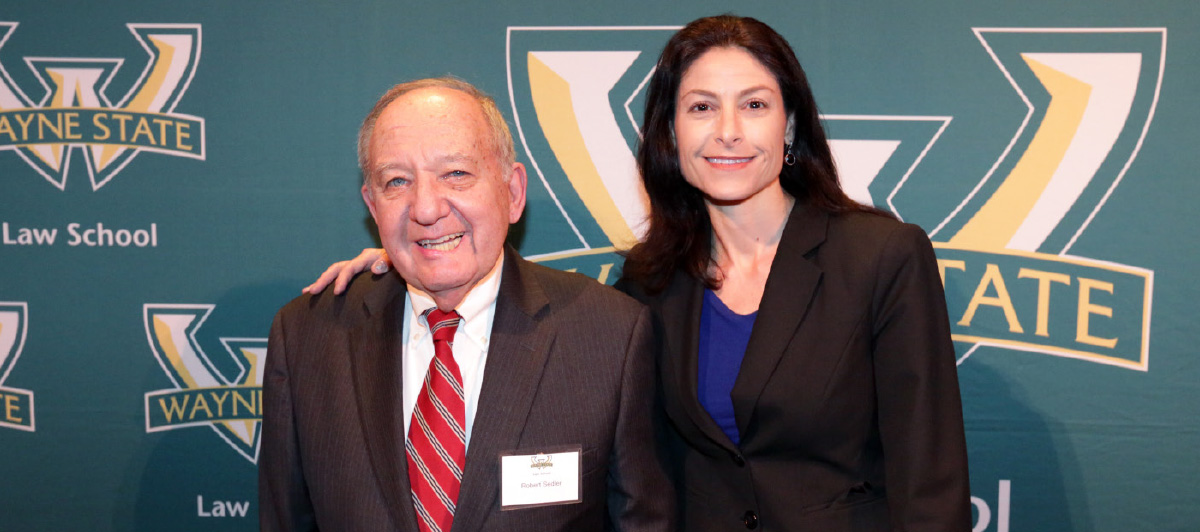
Reflecting on her experience at the Law School, Nessel recalls having the unique ability to work as a law clerk in the Wayne County Prosecutor’s Office by day and attend evening classes that offered an education in not just theory, but in practice.
“Wayne Law is really geared toward real-world experiences. I had all these logical professors,” she says, citing her Criminal Procedure II professor, former Wayne County Prosecutor’s Office Appellate Department Head Tim Baughman. “It’s not just that they were professors,” she says. “They also were some of the state’s best practitioners, so it allowed you to better understand how to practice the area of law that you were actually learning about.”
During her time at Wayne Law, Nessel was active in the Free Legal Aid Clinic, Moot Court and the Student Trial Advocacy Program (STAP). Now known as Mock Trial, STAP saw her studying in the Frank Murphy Hall of Justice — the same hall in which Nessel would try cases following graduation.
“I learned to try cases in the very courtrooms that I later ended up trying real cases,” she observes.
Doddamani experienced a similar transition from Wayne Law, where courses like Criminal Procedure, Evidence and Trial Advocacy set her up for success in the courtroom.
“Once you pass the bar, there is little to no training before you can start handling cases,” she says. “Having practical classes gave me the base to learn the intricacies on the job.”
For Hammoud, Wayne Law provided her with the tools necessary for a career in law, but also ignited her passion to be an agent of change.
“As a law student in Detroit, I thought deeply about how a difference of one ZIP code — or even a single street — could significantly impact a person’s life expectancy, educational outcomes and opportunity to realize their potential,” she says. “I resolved to do everything in my power to use the law as a tool of empowerment, rather than disenfranchisement, to protect and defend the rights of all people.”
And that level of advocacy resonates with Nessel.
“It’s been a privilege to be able to work with Sunita and Fadwa, and to know their passion for the law,” she says. “They have the same concerns and zeal for justice that I have.”
“But,” Nessel deadpans, “we have a lot of amazing Wayne Law grads here in the attorney general’s office — and we are always looking for more.”